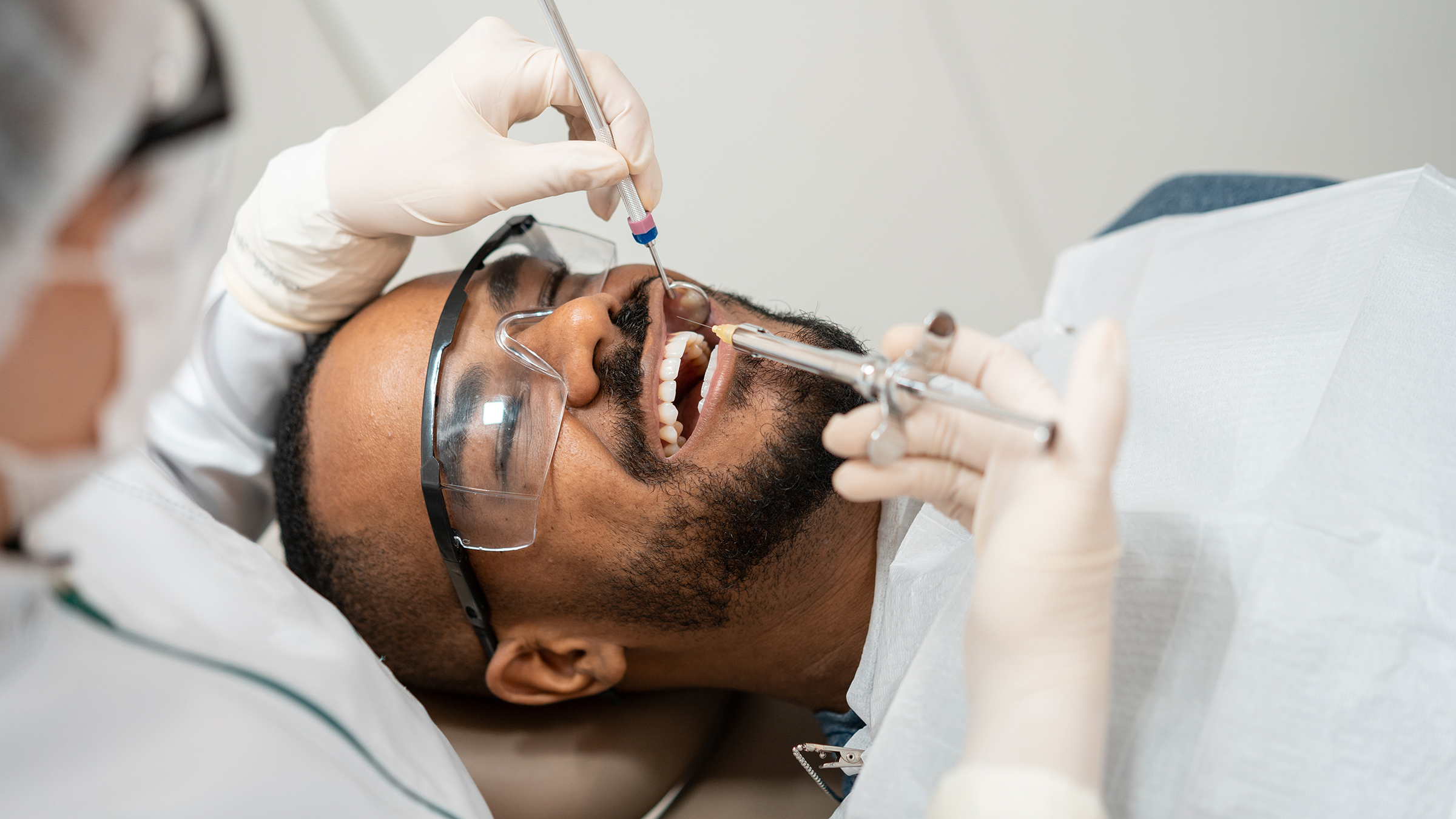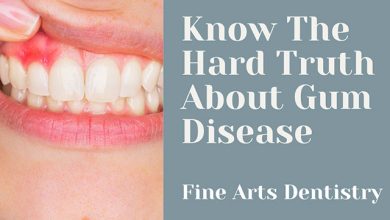Are Dental Crowns Covered by Insurance? Get the Facts Now!

Dental crowns may or may not be covered by insurance, depending on your specific insurance plan and coverage details. Dental crowns are a common dental procedure used to restore and protect a damaged tooth.
In some cases, insurance plans may cover a portion or the full cost of dental crown treatments, while in other cases, the patient may be responsible for the entire cost. The coverage for dental crowns varies widely among insurance plans, so it is important to review your specific plan’s coverage details or contact your insurance provider to determine if dental crowns are covered.
Being aware of your insurance coverage can help you plan and budget for any necessary dental treatments involving crowns.
What Are Dental Crowns?
A dental crown is a tooth-shaped cap that is placed over a damaged tooth to restore its size, shape, strength, and appearance. It is commonly used to protect weak teeth, restore broken or worn-down teeth, cover dental implants, anchor dental bridges, and improve the overall appearance of a person’s smile.
Definition Of Dental Crowns:
Dental crowns, also known as tooth caps, are custom-made prosthetic devices that are designed to cover the entire tooth above the gum line. They are typically made from a variety of materials, including metal alloys, porcelain-fused-to-metal, all-ceramic or all-porcelain, and zirconia. These materials provide strength, durability, and a natural-looking appearance, which makes dental crowns a popular choice for dental restorations.
Purpose And Benefits Of Dental Crowns:
- Restores damaged or decayed teeth
- Strengthens weak or cracked teeth
- Protects teeth after a root canal treatment
- Improves the appearance of misshapen or discolored teeth
- Supports dental bridges
- Covers dental implants
- Enhances overall dental function and aesthetics
It is important to note that insurance coverage for dental crowns can vary depending on the provider and specific policy. Some dental insurance plans may fully or partially cover the cost of dental crowns, while others may only provide coverage for certain types of dental crowns or under certain circumstances. It is recommended to check with your insurance provider to understand the coverage options and potential out-of-pocket expenses associated with dental crowns.

Credit: www.goodrx.com
Insurance Coverage For Dental Crowns
Insurance coverage for dental crowns varies depending on the individual policy and provider. Understanding what your dental insurance covers can help you plan for potential costs.
Factors that can affect insurance coverage for dental crowns include the type of policy you have, the reason for getting the crown, and whether the crown is considered cosmetic or medically necessary.
Some dental insurance policies may have limitations on coverage for certain procedures, including dental crowns. It is important to review the specific terms of your policy and consult with your insurance provider to get a clear understanding of what is covered.
Types Of Dental Insurance Plans
There are different types of dental insurance plans available. These plans may vary in terms of coverage and benefits provided.
| Type of Plan | Coverage for Dental Crowns |
|---|---|
| Indemnity Plans | Typically cover a percentage of the cost, ranging from 50-80%, after deductibles and annual maximums. |
| Preferred Provider Organizations (PPO) Plans | Offer a network of dentists who have agreed to provide services at discounted rates. Dental crowns may be covered at a percentage (e.g., 50%) of the negotiated fee. |
| Health Maintenance Organizations (HMO) Plans | Provide coverage for a fixed list of dentists. Dental crowns may be covered at a percentage (e.g., 50%) of the contracted fee. |
| Discount Dental Plans | Offer discounted rates for dental services, including dental crowns, at participating dentists. |
When considering dental insurance coverage for dental crowns, it’s important to review the specifics of your plan. Check the percentage covered, deductibles, and annual maximums to understand your out-of-pocket costs. Additionally, it’s advisable to confirm with your insurance provider whether your dental crown procedure is considered a covered benefit. Remember to factor in any waiting periods or pre-authorization requirements that may apply to maximize your insurance benefits.
Understanding Insurance Policies And Benefits
One common concern when it comes to dental treatments is whether they will be covered by insurance. Understanding insurance policies and benefits can help shed light on this matter. It is important to thoroughly examine policy terms and conditions. This includes considering deductibles, copayments, and maximums. Deductibles refer to the amount the patient must pay before insurance coverage applies. Copayments, on the other hand, are a fixed amount the patient is responsible for at each dental visit.
Maximums indicate the maximum amount the insurance company will pay for the covered treatments within a specified period. In-network coverage typically refers to dentists who have a contract with the insurance company, which may provide more benefits, while out-of-network coverage may have different terms and conditions. By review your insurance policy and understanding its terms, you can get a better idea of whether dental crowns are covered.
Pre-authorization And Pre-determination
Understanding the importance of pre-authorization and pre-determination processes for dental crown procedures can greatly benefit individuals exploring insurance coverage options. Pre-authorization serves as a way to gain approval from insurance providers before undergoing any treatment. It involves submitting a request and relevant documentation to determine if a dental crown procedure is medically necessary. This step is crucial as it helps avoid any unexpected financial burdens that may arise from denied claims or inadequate coverage.
On the other hand, pre-determination provides individuals with an accurate estimation of the coverage they can expect for their dental crown procedure. By considering factors such as deductibles, co-payments, and maximum coverage limits, individuals can better plan and budget for their dental treatment. Obtaining both pre-authorization and pre-determination is a proactive approach to ensure that insurance coverage aligns with the costs associated with dental crown procedures.
Out-of-pocket Expenses For Dental Crowns
Are Dental Crowns Covered by Insurance?
Dental crowns are a common dental procedure used to restore damaged teeth. The cost of dental crowns can vary depending on a variety of factors. One of the important factors to consider is whether dental insurance covers the cost of crowns.
Out-of-pocket expenses for dental crowns can differ significantly based on your individual insurance plan. Some dental insurance plans cover a portion of the cost of dental crowns, while others may not cover them at all. It is important to review your insurance policy to understand what is covered and what is not.
The average cost of dental crowns can range from $800 to $1,500 per tooth. This cost may increase if additional procedures such as root canals or tooth extractions are required.
In addition to the cost of the crown itself, there may be additional fees and expenses involved. For example, there may be fees for the initial consultation, X-rays, or temporary crowns.
If you are concerned about the cost of dental crowns and your insurance does not cover them, there may be financing options and payment plans available to help make the treatment more affordable. Many dental offices offer financing options or work with third-party financing companies to provide payment plans.
When considering dental crowns, it is important to consult with your dentist to understand the total cost and explore all available payment options.
Supplementary Dental Discount Plans
Supplementary dental discount plans can be an alternative solution for individuals seeking coverage for dental crowns. These plans offer reduced rates for various dental procedures, including crowns, bridges, and implants. The way dental discount plans work is simple – members pay an annual fee to gain access to a network of dentists who have agreed to provide discounts on their services. Unlike traditional insurance, dental discount plans do not involve deductibles, waiting periods, or claim forms. However, it’s essential to note that these plans are not insurance policies and do not provide the same level of coverage. Pros of dental discount plans include their affordability, immediate availability, and the lack of pre-existing condition limitations. On the other hand, cons of these plans include the limited provider networks, the discounts only being applicable at in-network dentists, and the lack of coverage for major dental procedures.
Regular Dental Check-ups
Regular dental check-ups are a crucial aspect of maintaining good oral health. These visits play a significant role in the overall well-being of your teeth and gums. By visiting your dentist on a routine basis, you can stay ahead of potential dental problems and address any issues early on.
Importance Of Regular Dental Visits
Regular dental visits enable your dentist to examine your oral health thoroughly. During these check-ups, your dentist will look for signs of tooth decay, gum disease, or any other oral health concerns. Early detection of these issues is key to preventing them from progressing and causing more extensive damage.
Regular dental visits also allow for preventive care. Your dentist may recommend professional dental cleanings to remove plaque and tartar buildup, reducing the risk of developing cavities and gum disease. Additionally, these check-ups provide an opportunity for your dentist to educate you on proper oral hygiene practices and address any questions or concerns you may have.
In conclusion, regular dental visits are essential for maintaining optimal oral health. Not only do they help identify and address dental issues early, but they also allow for preventive care, ultimately saving you time, money, and potential discomfort in the long run. Don’t neglect your regular check-ups; your smile will thank you!
Communication With Insurance Providers
Effective communication with insurance providers is crucial when dealing with dental crowns and insurance coverage. Asking the right questions and understanding insurance policies can help navigate the process smoothly.
When communicating with your insurance provider, it’s important to gather all necessary information beforehand. Be prepared to provide details about your dental crown procedure, such as the reason for the crown and any pre-authorization requirements.
During the conversation, ask specific questions regarding coverage, limitations, and any potential out-of-pocket expenses. Understand the policy’s waiting period, annual maximums, and whether the crown falls under restorative or cosmetic procedures.
If a claim for dental crown coverage is denied, don’t panic. Review the denial letter carefully and identify the reason for denial. It may be a simple error or misunderstanding. Make sure to follow the appeals process outlined by your insurance provider to challenge the denied claim.
Remember, effective communication and understanding insurance policies can help ensure that your dental crown treatment is covered and minimize any unexpected expenses.
Alternative Treatment Options
Dental crowns are a common treatment for damaged teeth, but are they covered by insurance? Well, it depends on your policy. While many dental insurance plans do cover crowns to some extent, there may be alternative treatment options that are also covered. It’s important to discuss these options with your dentist to determine the best course of action for your specific needs.
When it comes to alternative treatments, there are a few options to consider. One option is dental veneers, which are thin shells that are bonded to the front of the teeth to improve their appearance. Veneers can be a more conservative and less expensive option compared to dental crowns. Another alternative treatment is dental bonding, which uses composite resin to repair chipped or cracked teeth. Bonding is a less invasive procedure compared to crowns and can provide quick results in just one visit to the dentist.
When exploring insurance coverage for these alternative treatments, it’s important to review your policy’s coverage details. Some insurance plans may cover a portion of the cost, while others may not provide any coverage. Additionally, certain criteria such as the severity of the dental issue and the specific insurance plan may influence which treatments are covered.
In summary, while dental crowns are a common treatment, alternative options such as dental veneers and bonding may also be covered by insurance. It’s important to consult your dentist and review your insurance policy to determine the best treatment option for your dental needs.
Frequently Asked Questions Of Are Dental Crowns Covered By Insurance?
What Is The Cheapest Crown For Teeth?
The most affordable option for dental crowns is usually made of porcelain-fused-to-metal. These crowns provide a balance between cost and durability, making them a popular choice for many individuals.
Why Are Dental Crowns So Expensive?
Dental crowns can be expensive due to the high-quality materials used, such as ceramic or metal alloys. The complex process of making custom crowns also adds to the cost. Additionally, the skills and expertise of the dentist and the need for specialized equipment contribute to the expense.
How Long Should A Crown Last On A Tooth?
A crown on a tooth typically lasts around 10-15 years with proper care.
Is It Painful To Have A Crown Put On Your Tooth?
Having a crown put on your tooth does not typically cause significant pain. Your dentist will numb the area with local anesthesia, ensuring a comfortable procedure. Some people may experience mild discomfort or sensitivity after the procedure, but this can be managed with over-the-counter pain relievers.
Conclusion
When considering dental crowns, it is crucial to explore your insurance coverage. Although dental insurance plans vary, they often cover a portion of the cost for dental crowns, especially if the procedure is deemed necessary. It is recommended to consult with your dental insurance provider to understand the specifics of your coverage and any associated limitations.
Understanding your insurance coverage will help you make informed decisions regarding your dental health.






2 Comments